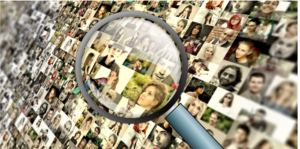It was hard deciding who to cybersleuth so, I called up a friend I met a year ago to obtain permission to cybersleuth him and he gave me the go-ahead. Though Cyber sleuthing is something I’ve always heard about I’ve never imagined myself digging deep into someone via the internet or playing the online detective.
To begin, I visited Google and discovered some steps on how to fi nd information on someone online and my first point of action was exploring the Google search engine. I’ve always known him by his first and last name, so it was easy to search for his name on Google and I was able to get his middle name as well. I stumbled on his LinkedIn account from Google and discovered he has worked as a Project Engineer for 7 years and as a Site Engineer for 2 years. From his YouTube channel, I discovered he had been a marketer for an online marketing company that had folded up 10 years ago. It seemed difficult to get his biographical data from Google so I decided to search for him on Facebook. Now I had all 3 names which made my search rather easy. From Facebook, I was able to get his birthday – February 21, 1986, family/relationships, and could view some activities he does like singing in the church choir and going on picnics with family. I would say his Facebook account portrays more of church and family. Nothing political was viewed from his Facebook account rather more of religion. So, he wedded 5 years ago and has a beautiful daughter.
nd information on someone online and my first point of action was exploring the Google search engine. I’ve always known him by his first and last name, so it was easy to search for his name on Google and I was able to get his middle name as well. I stumbled on his LinkedIn account from Google and discovered he has worked as a Project Engineer for 7 years and as a Site Engineer for 2 years. From his YouTube channel, I discovered he had been a marketer for an online marketing company that had folded up 10 years ago. It seemed difficult to get his biographical data from Google so I decided to search for him on Facebook. Now I had all 3 names which made my search rather easy. From Facebook, I was able to get his birthday – February 21, 1986, family/relationships, and could view some activities he does like singing in the church choir and going on picnics with family. I would say his Facebook account portrays more of church and family. Nothing political was viewed from his Facebook account rather more of religion. So, he wedded 5 years ago and has a beautiful daughter.
In my quest to discover more, I explored other search engines like Qwant and Bing. I discovered he has an Instagram page but what intrigued me most was that his Instagram page was with a different name which I suspect to be a nickname his friends address him with though his profile picture remains the same on all the online sites. His activities here seemed different from those of Facebook in terms of socializing with friends and colleagues. It seems Instagram  is where he feels free to explore his social life. From my search, it is obvious that he portrays different personalities on different sites for different purposes which relates to the article “Having Multiple Online Identities is More Normal Than You Think”. I would say he can be trusted based on his digital footprint. I didn’t see anything implicating or suspicious about him so, I would say yes, I could hire him. His LinkedIn account will be a great start for me as an employer.
is where he feels free to explore his social life. From my search, it is obvious that he portrays different personalities on different sites for different purposes which relates to the article “Having Multiple Online Identities is More Normal Than You Think”. I would say he can be trusted based on his digital footprint. I didn’t see anything implicating or suspicious about him so, I would say yes, I could hire him. His LinkedIn account will be a great start for me as an employer.
As our everyday activities shift online, the ability to trust other people’s digital identities is critical. Ensuring people online are actually who they say they are seems challenging. Digital identity can be defined as a person’s social identity in the digital realm. Any personal data that can be traced back to the real you constitutes your digital identity. For example, images you’ve shared on social media, posts you’ve written or commented on, your online bank account, search engine history, and yes, your Steam account if you’re a gamer. With these, cultivating a digital identity in responsible and empowering ways is crucial and as future educators, it is important to teach the students ways they can be responsible online.
In the TED talk, “One Tweet Can Ruin Your Life”, Jon Ronson shares the story of Justine Sacco’s tweet about possibly getting AIDS in Africa. This one tweet became a trending topic worldwide hence, leading to her being shamed and humiliated online. The consequences of this tweet affected her relationship with friends/family, her career, and her mental health.
As future educators, it is important to expose our students to how presenting themselves and sharing information online can affect their sense of self, their reputations, and their relationships.
